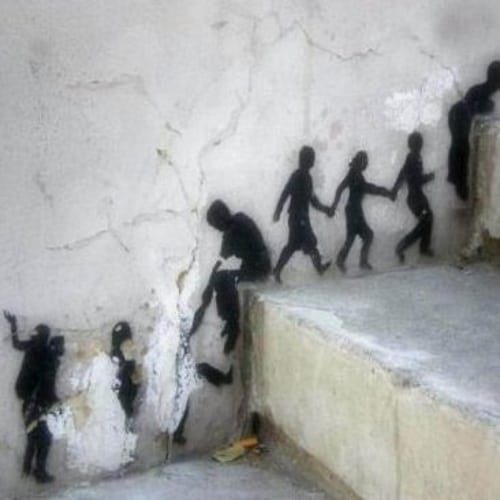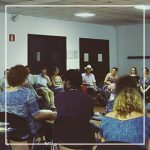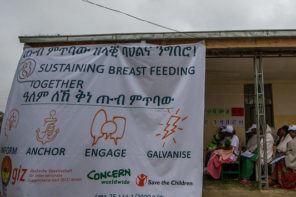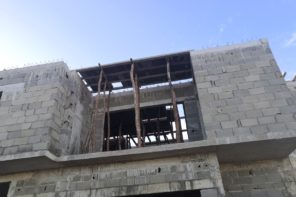The HAU controversy is both a disappointment and an opportunity.
It is a disappointment because it reflects the troubled condition in which academic anthropology finds itself at present. While we are taught that our discipline’s mission is to understand how power, hierarchy, economic, gender, and social inequality work, much of the discussions among those centrally involved in the controversy have been framed as mutual recriminations or apologies, while more critical voices have emerged on social media. We feel this development misses the larger point: that the abuses at HAU rely on structural inequalities that have worsened under the introduction of new managerialism and commodification of academia in the past decades (see posts by Ilana Gershon and Jason Baird Jackson).
The issues that have recently emerged are open secrets, the kind of experiences that junior and/or un-tenured scholars routinely recount from their everyday struggles to remain in academia and make their professional lives tolerable.
The issues that have recently emerged are open secrets, the kind of experiences that junior and/or un-tenured scholars routinely recount from their everyday struggles to remain in academia and make their professional lives tolerable. While we acknowledge that every case requires careful unpacking and critical analysis, we underline that these issues extend well beyond the HAU case. The larger and more pressing question to address is how deepening structural inequalities have become the breeding ground for toxic power relations, opening the door to abuse, silencing its victims, and dimming the critical and reflexive abilities of tenured scholars towards their own responsibilities in ensuring a just working environment for untenured staff.
The fact that abuses can go unaddressed for so long, and that when they come to light, their victims feel they need to turn to the protective promise of anonymity is only the immediate symptom of the more general malady of our discipline’s failed decolonisation as other colleagues have argued e.g. here and here.
This, together with the increased precariousness of employment conditions, gives license to the predatory structures of new divisions of labour within the discipline.
We are concerned, most of all, with the kind of hierarchies through which those in secure positions have been allowing academia, without much resistance or signs of reflection, to become a place of increasing inequality. Under this newer two-tiered system, benefits of patronisation accrue to tenured scholars who are entitled to apply for, receive, and manage research funding, while others are relegated to the precarious conditions that the teaching and research buy-out system affords to them. Under this system, those few who have obtained ‘super-star’ status by bringing money and prestige to their institutions, and have thus profited most from the status quo, are responsible for employing large swathes of precarious academics. It is a situation in which the latter, precarious students and early career researchers and teaching-only staff, are utilised and exploited as cheap labour, but without any real guarantee of permanent employment.
As long as precarious or unpaid ‘career development’ work is misleadingly framed as a pathway to permanency, these kinds of abuses are unlikely to disappear. The hope and encouragement of future permanency through demeaning work relationships leaves ‘junior’ scholars’ voiceless and vulnerable, as they are justifiably fearful of exclusion or punishment if they speak up. This neo-feudalisation of academia, where student numbers are growing steadily and the projectification of academic life is leading to an exponential increase in fixed-term and underpaid employment, creates a culture of subservience. At the heart of these systemic inequalities rolls a machinery of cut-throat competition that institutionalises gratis work, in which we are all caught up.
At the heart of these systemic inequalities rolls a machinery of cut-throat competition that institutionalises gratis work, in which we are all caught up.
Moreover, in anthropology, as we are all aware, issues of fieldwork autonomy and authorship are truly contentious. These can too easily become spaces of exploitation, all the more so under the neoliberal academic imperative to ‘publish or perish’, the commercialisation of publishing, and the tyranny of rankings.
Rather than dwelling on the particulars of the HAU case, however revealing they might be, we would like to take this as an opportunity to start a discussion of broader issues in academia in general, and in anthropology in particular.
We therefore call for a collective rethinking of our responsibilities to foster ethical relationships among ourselves.
We believe it is now necessary to turn our attention to beginning a collective struggle against labour exploitation by creating a strong and vocal transnational union of anthropologists.
We believe it is now necessary to turn our attention to beginning a collective struggle against labour exploitation by creating a strong and vocal transnational union of anthropologists.
Such a collective effort should take into consideration the hybrid and internationally diverse working environments we face, of which a journal such as HAU is just one instance.
It is imperative not to allow an armchair, machistic, ego-driven, one-wo/man show anthropology to continue to extract surplus from precarious academics and reign over our discipline, in blatant disregard of the values we are taught are central to our work. This will be the topic of the #PrecAnthro2 workshop at the upcoming European Association of Social Anthropology conference that we invite you all to attend. In continuation of our PrecAnthro initiative from 2016, we will explore the promises and openings of unionising. We will further pursue our goal of making anthropology a more equal and open discipline and seek out the best ways to do this collectively and collaboratively. The event will provide a space to propose some concrete steps addressing these issues, including, for instance, writing a code of conduct in academic employment.
Unionising today means fighting against conditions that allow precarious workers to be exploited and abused. It means opening up a space in which precarious academics can speak up against the various forms exploitation and abuse can take, without fearing for their future career prospects or reputations. It means speaking up, and fighting against, the predatory practices that affect so many of us, yet remain unchallenged because of deeply entrenched power relations sustained by the neoliberal system in which academia is embedded. It means properly acknowledging the work of junior and precarious academics labouring under senior scholars, and reminding the latter of their responsibility to ensure dignity in their working environments. It also means using the analytical tools at our disposal to critically engage with the exploitative practices of neoliberal academia in general, while following an ethical imperative of challenging injustice where we see it. It means confronting the still very present colonialist tendencies in the way our discipline is practiced, and engaging frontally with injustice, abuse, racism, misogyny, and exploitation. It means doing this not only in our fieldwork, but also in our departments, institutions, and journals ‘at home’.
Join us in this collective struggle for a more just anthropological future!
On behalf of the PrecAnthro Collective
Ana Ivasiuc
Mariya Ivancheva
Lara McKenzie
Dan Hirslund
Republished on the 7th of August 2020.








